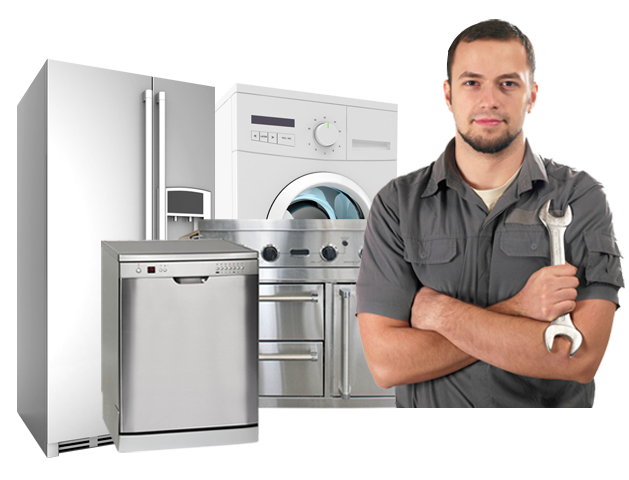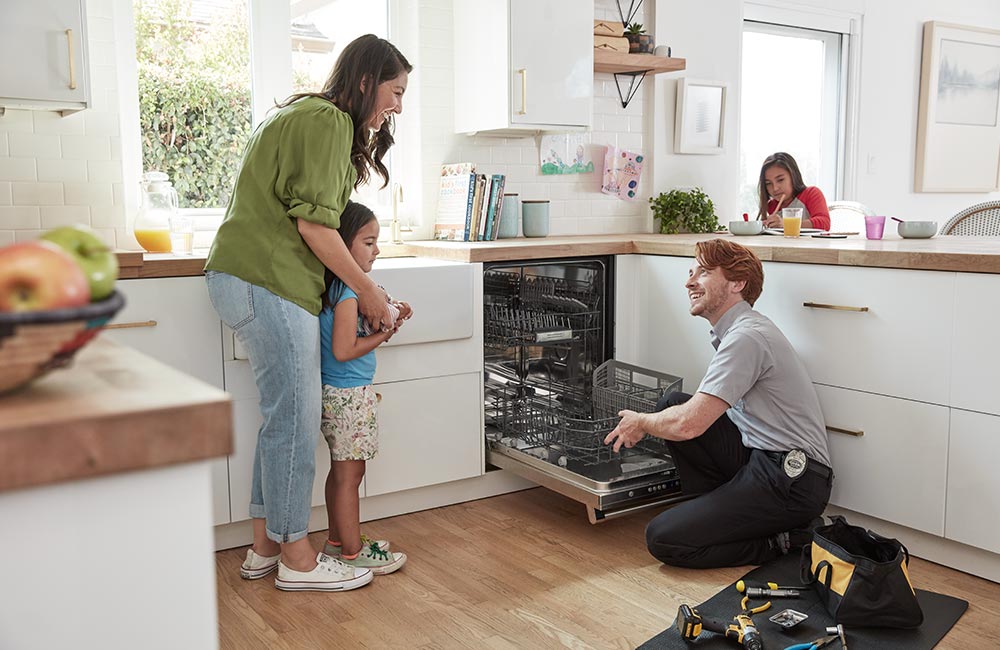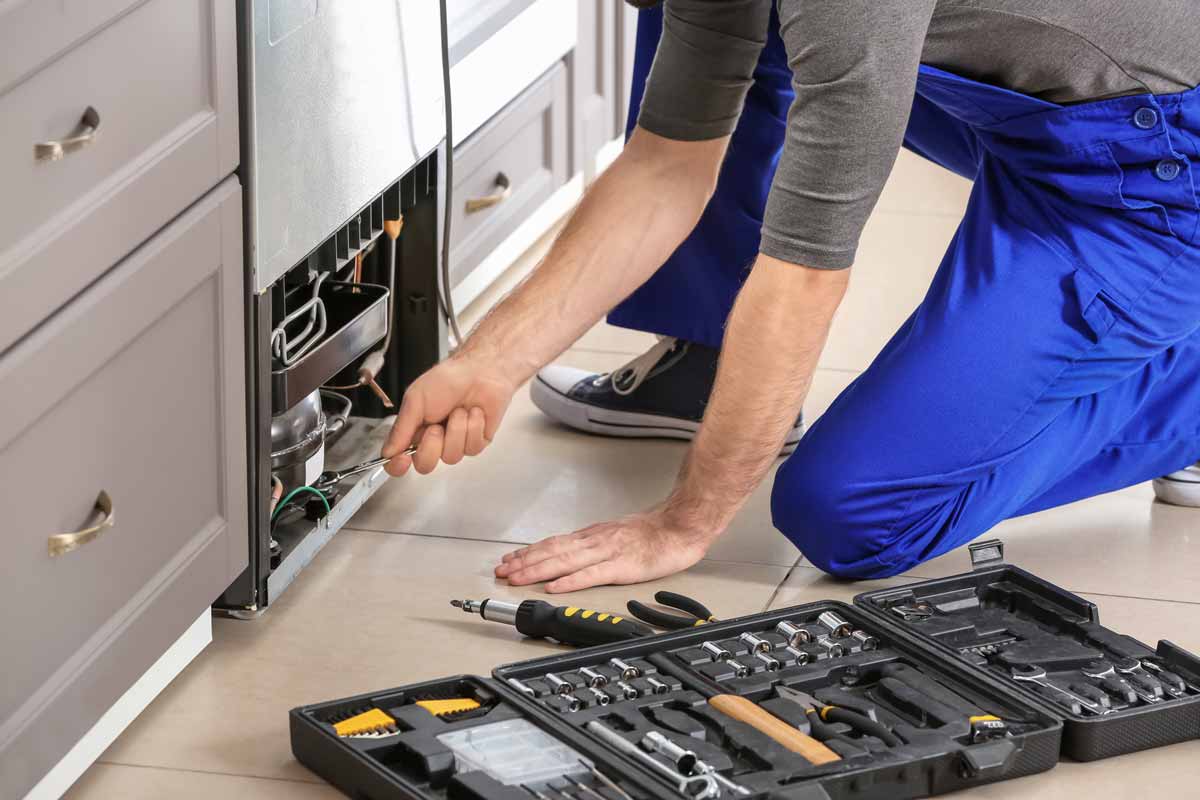The Ultimate Overview to Understanding Home Appliance Repair in your home
When your fridge stops cooling or your stove refuses to warm, it can feel overwhelming. Comprehending appliance repair in your home can save you time and money. You'll find out to identify signs, utilize crucial tools, and comply with an organized troubleshooting procedure. Prior to you begin, there are vital safety and security preventative measures you need to take right into account. What are one of the most typical issues, and how can you repair them? Let's explore the basics.
Common Device Issues and Their Symptoms
When your appliances start acting up, it's important to identify the signs beforehand. Neglecting them can result in larger concerns and costly fixings. If your refrigerator isn't cooling correctly, you could discover cozy areas or condensation forming. This could show a failing compressor or a blocked vent.Your dishwasher might show problems with dirty meals or unusual noises during cycles. If you hear grinding or clanking, it's time to investigate.A washing device that won't spin or drain pipes can leave you with soggy laundry, suggesting a blocked drainpipe or a malfunctioning pump.Lastly, if your oven's temperature appears off or it takes permanently to pre-heat, you may be taking care of a defective thermostat. By staying sharp to these signs, you can attend to concerns prior to they intensify right into significant repair work.
Crucial Devices for Device Repair Work
When you're taking on device repair services in the house, having the right devices is necessary. Standard hand tools like screwdrivers and pliers will certainly aid you take apart and repair various devices, while electric screening devices ensure you're working safely with wiring. Allow's go over what you need to obtain begun on your fixing trip.
Standard Hand Devices
Having the right tools is crucial for efficient home appliance repair at home. Start with a reliable screwdriver collection, consisting of both flathead and Phillips kinds, as screws prevail in home appliance assembly. Pliers are likewise essential; they assist with gripping, turning, and cutting wires or tiny elements. A pair of needle-nose pliers can get to limited places easily. You'll require an excellent adjustable wrench for tightening up or loosening up nuts and bolts. An energy knife is helpful for cutting through product packaging or insulation. Don't fail to remember a strong workbench or surface to safely arrange your devices and parts. With these fundamental hand devices, you'll be well-prepared to deal with most appliance repair work that come your method.
Electric Testing Devices
Together with basic hand tools, electric screening devices play a vital duty in home appliance fixing. These devices assist you identify electric issues and warranty home appliances function safely. A multimeter is crucial; it measures voltage, current, and resistance, allowing you to determine troubles quickly. A non-contact voltage tester is an additional must-have, letting you spot live cables without making straight get in touch with, enhancing your safety and security. Clamp meters are great for determining current circulation in cords without separating them, conserving you effort and time. Furthermore, circuit testers can rapidly examine if outlets are operating properly. By utilizing these gadgets, you'll simplify your troubleshooting process and boost your repair work abilities, making device maintenance a lot simpler.
Step-by-Step Overview to Diagnosing Appliance Issues
When your appliance breaks down, it can be aggravating, but identifying the problem does not need to be overwhelming. You'll learn to recognize typical problems and use effective troubleshooting strategies. Allow's stroll via the steps to get your appliance back in working order.
Usual Appliance Issues

Repairing Methods Described

Fixing Major Cooking Area Appliances: A Closer Look
Have you ever before wondered exactly how to tackle common concerns with your cooking area home appliances? Fixing major kitchen area home appliances like fridges, stoves, and dish washers can be much easier than you assume. Start by recognizing the trouble-- whether it's a fridge not cooling or an oven that will not warm. Frequently, a simple reset or inspecting the source of power can resolve the issue.For fridges, clean the condenser coils and inspect the door seals. If your oven's not heating, examine the burner and thermostat. Dish washers may simply need a tidy filter or a reset to get them back in activity. Always unplug the home appliance before diving into repair work to ensure your safety.Don' t forget to seek advice from the individual handbook for specific troubleshooting ideas associated with your model. With a bit of persistence and the right devices, you can with confidence deal with device repair services and conserve cash at the same time!

Repairing Laundry Appliances: Tips and Techniques
When your washing devices begin breaking down, it can feel frustrating, but fixing them doesn't need to be an inconvenience. Begin by inspecting the power supply. Verify the home appliance is plugged in and the electrical outlet is operating. Next, inspect the door or lid switch; a damaged switch can protect against the device from operating.For washing machines, if it's not rotating, check for out of balance tons. Redistributing the clothes may fix the issue. If your dryer isn't home heating, clean the dust filter and check the vent for blockages.Listen for uncommon noises; they can show a trouble. If your device is dripping, inspect the hoses for fractures or loosened connections. Document any type of error codes presented on electronic displays, as they can assist you in recognizing the concern. Seek advice from the individual guidebook for certain troubleshooting ideas connected to your version.
Safety And Security Precautions to Take During Repairs
Prior to you start any type of device fixings, it's necessary to prioritize safety and security to stop accidents or injuries. Unplug the home appliance or transform off the circuit breaker to assure no power reaches it while you work. Usage protected devices to reduce the threat of electrical shock. Put on security goggles and handwear covers to safeguard yourself from sharp sides or debris (Dependable Refrigeration & Appliance Repair Service Dryer repair near me).Make certain your workspace is clean and well-lit, so you roomba vacuum repair near me can see what you're doing. Maintain kids and pet dogs far from the location to stay clear of diversions and potential dangers. If you're taking care of gas home appliances, be extra cautious; look for leaks prior to proceeding.Take your time, and don't rush through fixings. If you feel unsure about any type of step, it's far better to pause and research than to presume. Adhering to these preventative measures will assist develop a much safer atmosphere for your DIY device repair service project
When to Call a Professional for Aid
Just how do you understand if it's time to contact a professional for appliance fixings? If you have actually attempted standard troubleshooting without success, it's a clear indicator. If your appliance still will not begin or shows uncommon sounds after resetting it, do not be reluctant to look for specialist help.When you notice leakages, smoke, or shedding scents, focus on safety and call a professional instantly. These issues can cause even more substantial damages or pose threats to your home.Also, if your appliance is under warranty, calling a professional is commonly the best path. They can ensure that repair work will not void your Read Full Report guarantee, conserving you cash in the lengthy run.Finally, if you're unsure or unpleasant with complex repair services, it's a good idea to leave it to the professionals. Bear in mind, tackling challenging problems without the appropriate know-how can bring about expensive blunders. Count on a professional when unsure!
Frequently Asked Concerns
Exactly How Can I Protect Against Device Issues in the Future?
To stop device issues in the future, you ought to execute regular maintenance, look for wear and tear, clean filters, and prevent overloading. Staying proactive will aid prolong their lifespan and keep them running efficiently.
What Are the Most Usual DIY Appliance Repair Mistakes?
You might overlook safety and security precautions, miss fixing steps, or make use of wrong devices when trying DIY device repairs. Hurrying the process or neglecting supplier standards can lead to even more substantial problems and costly mistakes. Remain person and educated!
Just how Do I Know if a Part Requirements Replacement?
You can tell if a part requires substitute by checking for unusual sounds, leaks, or inconsistent performance. If the home appliance battles to operate appropriately or reveals noticeable damages, it's likely time for a replacement.
Can I Make Use Of Generic Components for Device Services?
Yes, you can use generic parts for appliance repairs, yet identify they're compatible - Lg Dryer repair near me Dependable Refrigeration & Appliance Repair Service. Generic parts may save you cash, however they could influence performance or long life, so consider other your choices thoroughly prior to choosing
What Warranties Cover Home Appliance Services?
A lot of appliance guarantees cover repair work for manufacturing flaws, but they often exclude damage from misuse. Check your service warranty terms carefully, as some might need making use of certified technicians and original components for insurance coverage to continue to be legitimate.